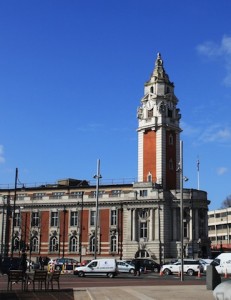
Lambeth sends more bailiffs to those on council tax support than any other London council, a report has found.
According to research by London anti-poverty charities Child Poverty Action Group and Z2K, Lambeth is the worst London borough for using bailiffs against people on support struggling to pay council tax bills.
Lambeth council referred a staggering 3,244 council tax support claimants to bailiffs in 2013/14, far more than the next biggest user of bailiffs, Hackney, which sent out 1,874.
Council tax benefits from central government were abolished in April 2013, while local authority subsidies were cut at the same time. The majority of councils in England, including Lambeth, chose not to increase council tax to make up the shortfall, instead introducing ‘minimum payment’ schemes which required all working-age claimants to pay some tax.
The report, entitled ‘A new poll tax?‘, stated that: “This has caused immense hardship for individuals and families, and made it more difficult for councils to collect council tax payments…it means that they have to collect council tax from residents who are unused to paying and, in some cases, have never paid before.”
Cllr Paul McGlone, cabinet member for finance and investment, said: “the use of bailiffs is always a last resort. In terms of Council Tax Support, uniquely in London, our local scheme excludes any liability for the most vulnerable, such as pensioners, carers, disabled people and those families affected by the benefits cap. As such we would never use bailiffs in these cases.”
After issuing warnings, the council can attempt to enforce the debt by deducting it directly from benefits or it can engage bailiffs to recover the debt, often by seizing goods to the value of the amount owed.
The report found that bailiffs only contributed to more financial woes for those struggling to pay. A council tax support claimant household living in a Band D property in Lambeth would, for instance, have an annual bill of £197. If they failed to pay and were summoned to court and issued with a liability order and charged costs for this, a further £127 would be added to the debt. If a bailiff was ordered they would then be charged a minimum of £75 and on top of that they could be charged £235 for the first visit to the house. “The net result”, says the report, “would lead to an already unmanageable debt of £197 skyrocketing to £634.”
And bailiffs don’t just bring bigger debt on the resident – they often prove ineffective in actually collecting the debt for the council too. In Lewisham, the success rate with bailiffs was found to be only 18% compared to 42% with just sending around a council tax officer.
Cllr McGlone said: “We have a responsibility to collect income which is needed to pay for essential services. Many of the people who are contacted by bailiffs have historic debt, have consistently refused to engage with the council or other agencies to improve their own financial security. We are constantly looking at how to improve the take up of our offers of help.”
In 2013/14 Lambeth Council collected 95% of council tax due.




Making poor people get into more debt is not only immoral but counter productive and this is why Lambeth residents are the most unhappy in UK. Lambeth the nasty Borough, If you want to get improver your srvies start by not contracting with known corrupt building contractors. If I said cats you would know who I mean